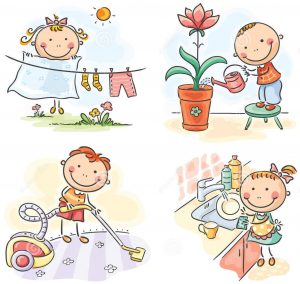
Parents of children with ADHD responded to a recent survey conducted online by ADHD Ireland that home schooling is the highest stressor on by the current COVID-19 crisis. COVID-19 is affecting families and children psychologically: increased anxiety, lack of freedom of movement, and loss of social connections with extended family and peers can put the mental well being of children with ADHD and their parents at risk. Changes in routine can also be stressful for some children with special needs.
Listen to your children, hear and acknowledge their needs and difficulties, be honest with them about COVID-19 and the need to stay at home and try to work out together ideas to help them learn through play. Empathize with your child and show confidence in your child’s ability to deal with this moment and learn from home. It is a common understanding that children learn through play. Based on a my PhD research, the importance of play for learning is even more evident in children with special educational needs, such as children with ADHD.
There is a type of playful learning associated with the philosophy of Montessori education that can be beneficial to children with ADHD and can be adapted for your home environment. I encourage the homeschooling of children with ADHD in a flexible way – homeschooling as a type of intermediate space between home and school is dependent of parent and teacher constant communication and collaboration.
Add play to your child’s daily activities at home. Children with ADHD may not enjoy performing a learning task or a household chore if they perceive the activity as an obligation and not as fun and enjoyable.
In the school context, there is evidence that the use of playful activities can improve the performance in reading and numerical reasoning of children with ADHD. Children with ADHD have concentration difficulties that may be context dependent. Prepare your home environment for your children with special needs and turn a chore into an enjoyable and fun challenge for children with adaptive utensils for them to actively engage in the household. This can happen easily during household chores such as watering plants, making the bed, cooking, tidying up etc. Montessori education believes on the importance of real work for the development of children – so homeschooling could focus on the emotional and life skills your child can learn from actively participating in household chores.
More Resources:
